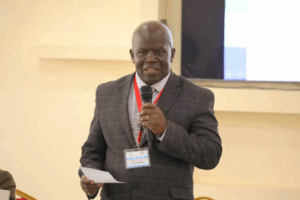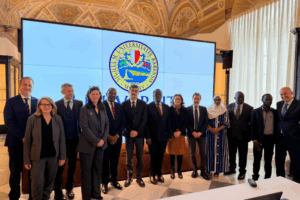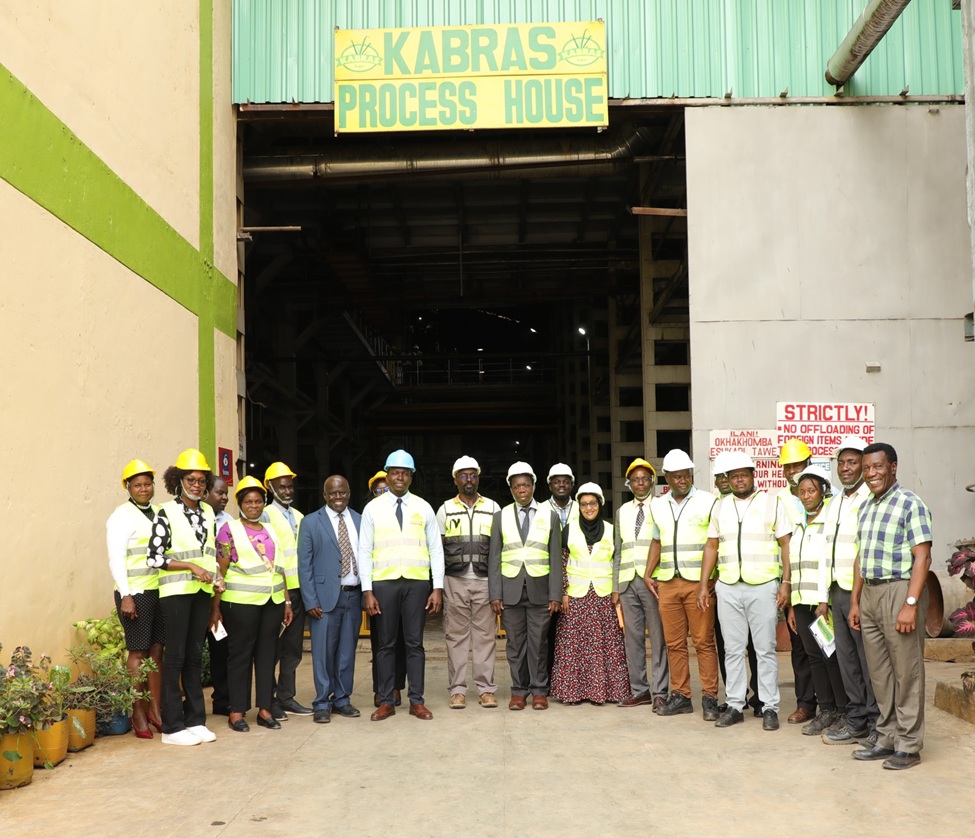
MMUST Set to Partner With West Kenya Sugar Company on a Feasibility Study on Sustainable Aviation Fuel Production and Business Implementation
In a bid to advance Kenya’s climate action goals, Masinde Muliro University of Science and Technology (MMUST) is set to partner with West Kenya Sugar Company on a feasibility study for Sustainable Aviation Fuel (SAF) production and Business Implementation Studies. On 16th July 2025, a delegation from the University, led by the Vice Chancellor-Prof. Solomon Shibairo, paid a courtesy visit to West Kenya Sugar Company where the two held discussions on the possible areas of collaboration. The planned collaboration is integral to realizing MMUST’s and the Kenya Civil Aviation Authority’s (KCAA) SAF project, which is geared towards the implementation of Kenya’s National Determined Contribution (NDC) in committing on energy transition towards a low carbon and climate-resilient development pathway by 2050. Accompanying the VC was the DVC for Administration and Finance-Prof. John Kuria Thuo; DVC for Planning, Research and Innovation-Prof. Peter Bukhala; Director DIAL-Dr. Umulkher Ali; and staff from the Science Park, Innovation and Incubation Centre (SPIIC) headed by the Director, Dr. Tecla Sum.
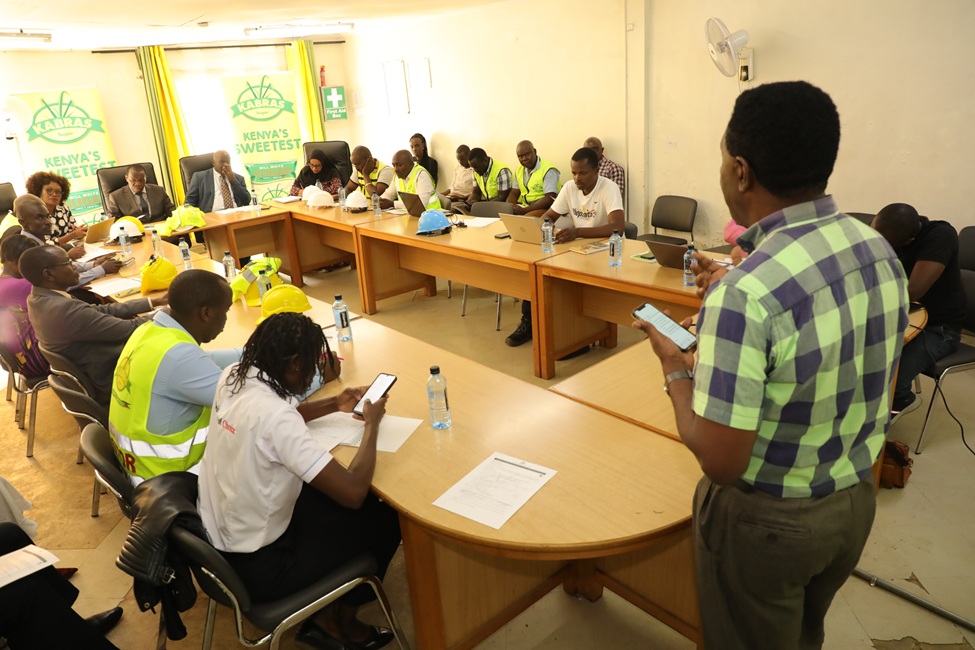
MMUST and West Kenya Sugar Company teams engage in partnership discussions.
Addressing the West Kenya Sugar Company team, the Vice Chancellor conveyed his appreciation for their warm reception and hospitality. He acknowledged the sugar company’s impact in the region, particularly its contributions to education, and encouraged their sustained efforts.
“Our collaboration on Sustainable Aviation Fuel is not merely a research endeavor but a national imperative for our future as a country. By uniting MMUST’s scientific expertise with West Kenya Sugar Company’s industrial scale and resources, we are certainly going to contribute towards the development of solutions for decarbonizing aviation. This will go a long way in advancing Kenya’s NDC under the Paris Agreement while transforming sugarcane low-value products into high-value aviation fuel, thereby realizing significant economic and environmental potential for our nation,” said Prof. Shibairo.
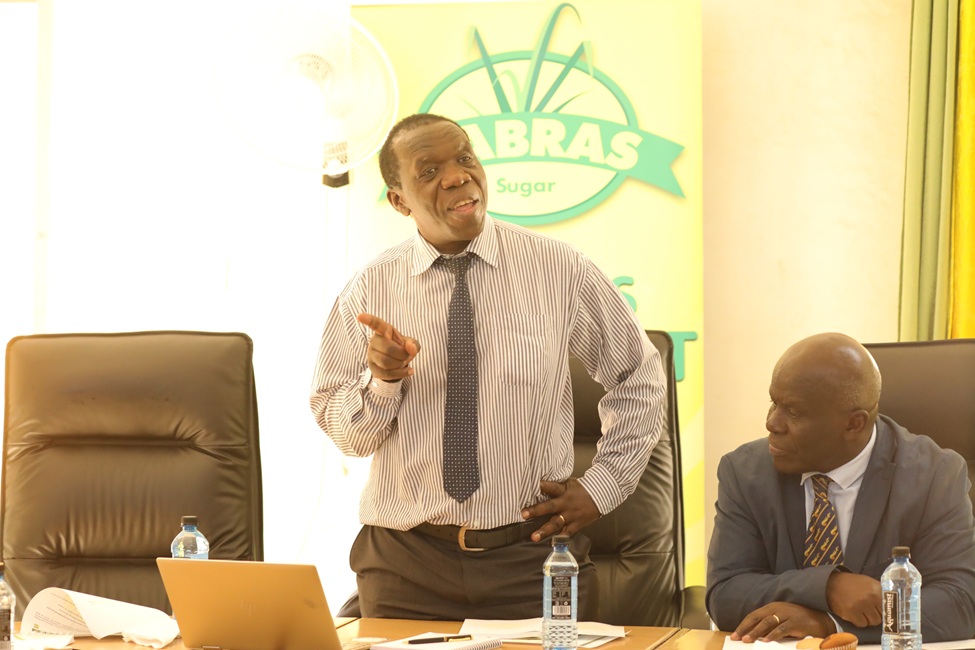
MMUST’s Vice Chancellor-Prof. Solomon Shibairo addressing the participants at the event.
The DVC for Administration and Finance-Prof. John Kuria Thuo, who also serves as the Chairman, Technical Working Committee for SAF project, elaborated on the University’s role in the initiative. He emphasized that MMUST is mandated to provide comprehensive technical and policy-relevant input during project deliberations, as well as offering subject-matter knowledge, which is vital for SAF production, business models, policy, and sustainability. Prof. Thuo stressed that fulfilling these demanding duties, among others, necessitate strategic collaborations with key stakeholders and partners.
“Our terms of reference from KCAA require us to mobilize support and resources to advance this project, and to engage constructively with all stakeholders. This mandate is precisely why we reached out to West Kenya Sugar Company. I am confident in the potential we have identified through the tour of your facilities and discussions, and I anticipate a highly productive partnership,” he stated.
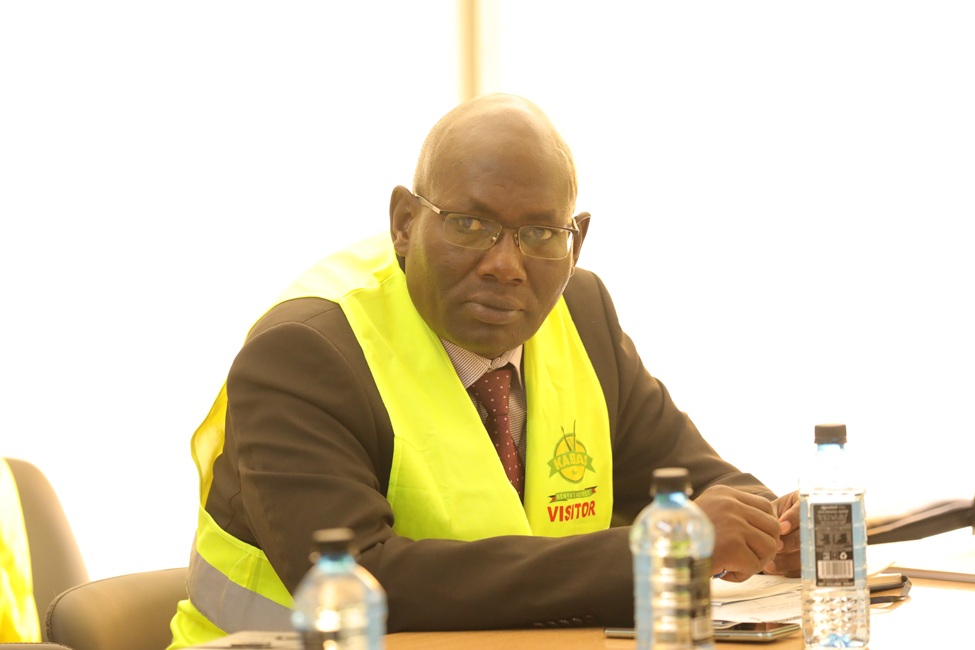
The DVC for Administration and Finance, and Chairman Technical Working Committee for SAF project-Prof. John Kuria Thuo keenly following discussions.
Reiterating, Prof. Peter Bukhala, the DVC for Planning, Research and Innovation underscored that institutions of higher learning are yet to embrace direct collaboration with industry just as they frequently partner with other academic institutions and organizations. “This collaboration will mark a crucial start for university-industry engagement. The industry’s practices are precisely what we must integrate into our teaching and research. Through this project, we eagerly anticipate gaining access to real-world best practices, which will directly enrich our curriculum and pedagogical approaches that will ensure our graduates are perfectly aligned with market demands,” he noted.
Further, he affirmed that the Division of Planning, Research and Innovation is fully prepared and open to extensive research collaborations. Prof. Bukhala urged both MMUST and West Kenya Sugar Company to pool their respective talents and expertise, and foster an open exchange of information to develop innovative, homegrown solutions for the many challenges affecting the people.
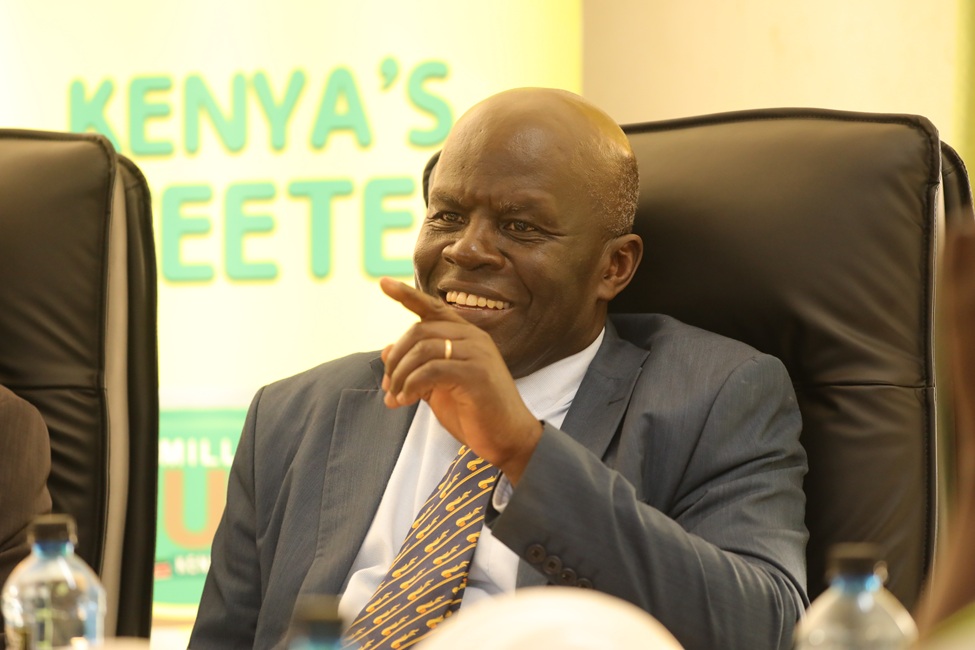
Prof. Peter Bukhala, the DVC for Planning, Research and Innovation making a point during the discussions.
The Team Leader for the Technical Working Committee on the SAF project, Dr. Tecla Sum, who is also the Director SPIIC, provided an in-depth overview of MMUST’s core responsibilities within the initiative. “Our role within the SAF value chain is to lead the feasibility study and conduct data mapping across Kenya, as we focus on the biomass potential for oil extraction. Our work also involves providing detailed technical analysis, supporting development of pilot surveys for SAF production, designing viable business models, and driving innovations through academic-industry partnerships. As a University we are committed to evaluating all aspects based on sustainability, evidence-based research and innovation, ensuring that all strategic partnerships we forge, align with national development goals and Kenya’s transition to green aviation fuel systems by 2050,” highlighted Dr. Sum, assuring both teams that the initiative will bring them great successes.
It is worth noting that the team lead in the Oleander Arm category towards biofuel production- Mr. Peter Odhiambo’s innovation, drew attention of the transport industry during the inaugural MMUST’s innovation week and was nominated as one outstanding product for commercialization.
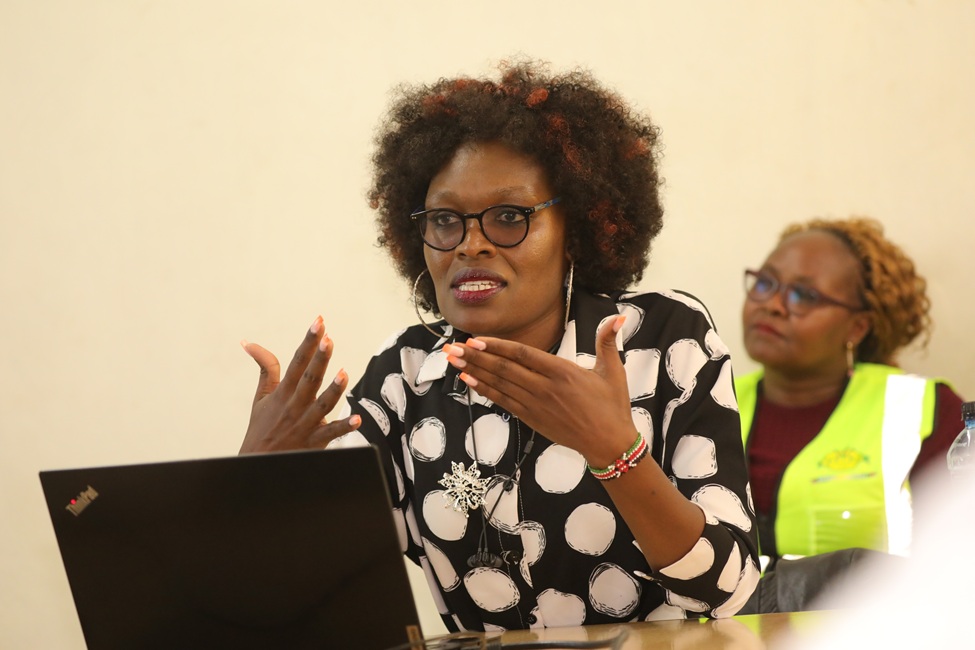
Director SPIIC as well as the Team Leader for the Technical Working Committee SAF project, Dr. Tecla Sum makes her presentation.
Speaking on behalf of the West Kenya Sugar Company, the Project Manager- Mr. Amilcar Odidi articulated a prevalent challenge confronting Kenya’s sugar industry, the underutilization of bagasse. He noted that West Kenya Sugar Company, like other producers across the nation, grapples with the immense volumes of bagasse generated daily. “Despite its potential, no major sugar company in Kenya is currently equipped to fully and innovatively ‘consume’ or convert all this bagasse into higher-value products,” he stated, grateful that this collaboration will help the company address this challenge. Further, he showcased the company’s efforts to sustainability by highlighting its successful utilization of other sugarcane by-products.
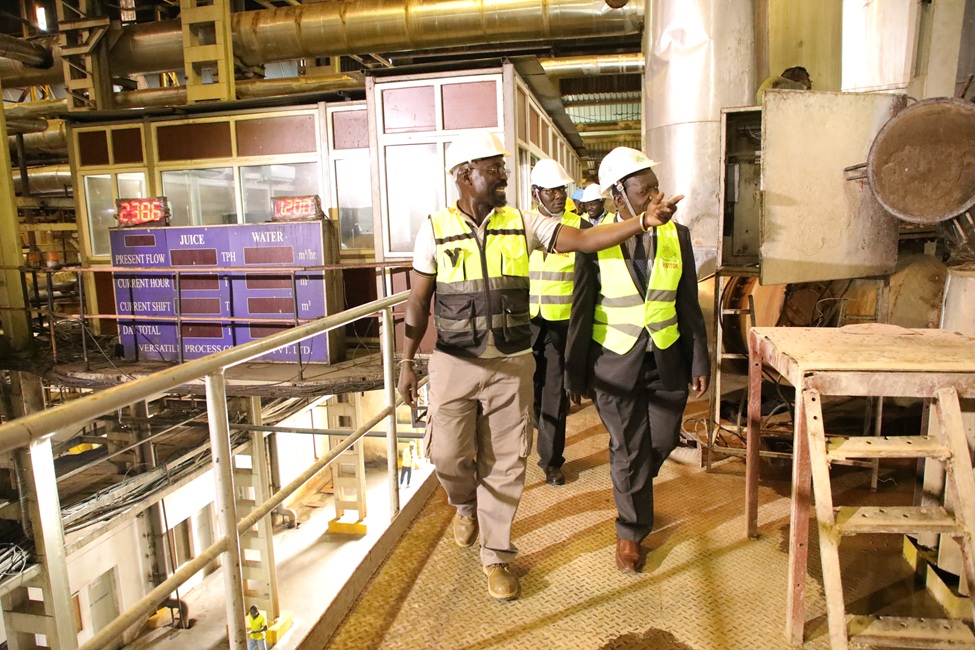
The Project Manager West Kenya Sugar Company – Mr. Amilcar Odidi leads the MMUST team in a facility tour.
Notably, the courtesy visit also featured virtual participation and key presentations from the KCAA Director General-CPA Francis Mwangi and team, as well as ICAO Consultant- Dr. Chiara Boscagli. MMUST team present at the event included Prof. Alice Ndiema, Dr. Collins Odoyo, Dr. Phillip Ogutu, Mr. Peter Odhiambo, Mr. Erick Wendo, Ms. Ruth Omega and Mr. Canon Odhiambo. Present from West Kenya Sugar Company were Mr. George Muruli, Mr. David Noel Okoth, Mr. Andrew Alovi, Mr. Collins Aluku, Mr. Thaddeus Wafula, Mr. Ignatius Odanga, Ms. Judith Nato, Mr. Shadrack Nashilobe, Mr. Barasa Simiyu, Mr. Chrispin Milimu, Mr. Edwin Achayo, Mr. Samson Lwanya, Ms. Janet Kibett, and Mr. Bonface Musotsi.
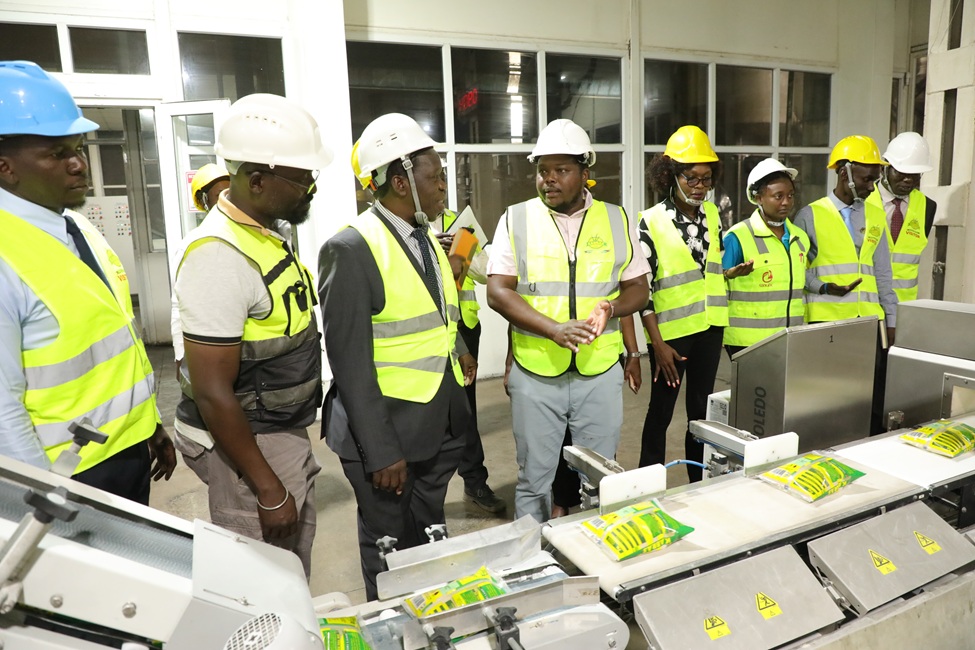
Mr. Tallam Billy- the Production Manager converse with the VC at the packaging area.
Certainly, MMUST’s collaboration with West Kenya Sugar Company will bring substantial benefits to the MMUST and KCAA SAF project. It will secure a reliable and scaled source of biomass resources suitable for oil extraction and subsequent SAF production. Besides this, this partnership also holds the potential for the ‘birth’ of a ‘Centre of Excellence in Sustainable Energy’ right here in Kakamega County. By strategically utilizing the vast quantities of bagasse and other by-products for energy production, including future possibilities in areas like solar, the project can fundamentally create a robust circular economy model. This will transform agricultural waste into high-value fuel, significantly reduce industrial waste, and profoundly boost the long-term economic viability of the entire sugar sector.
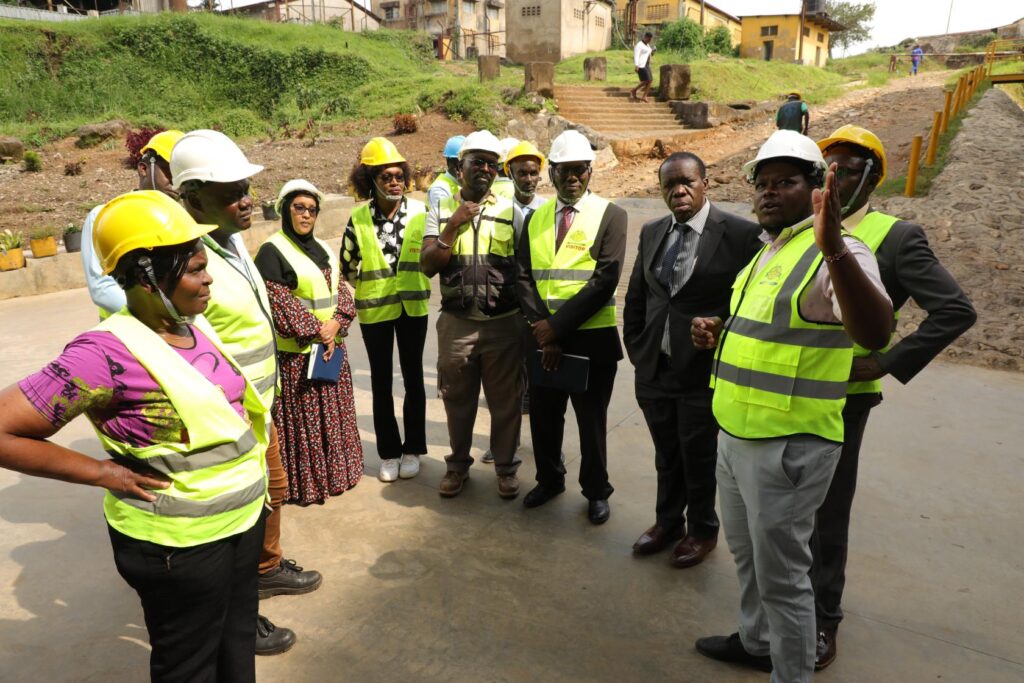
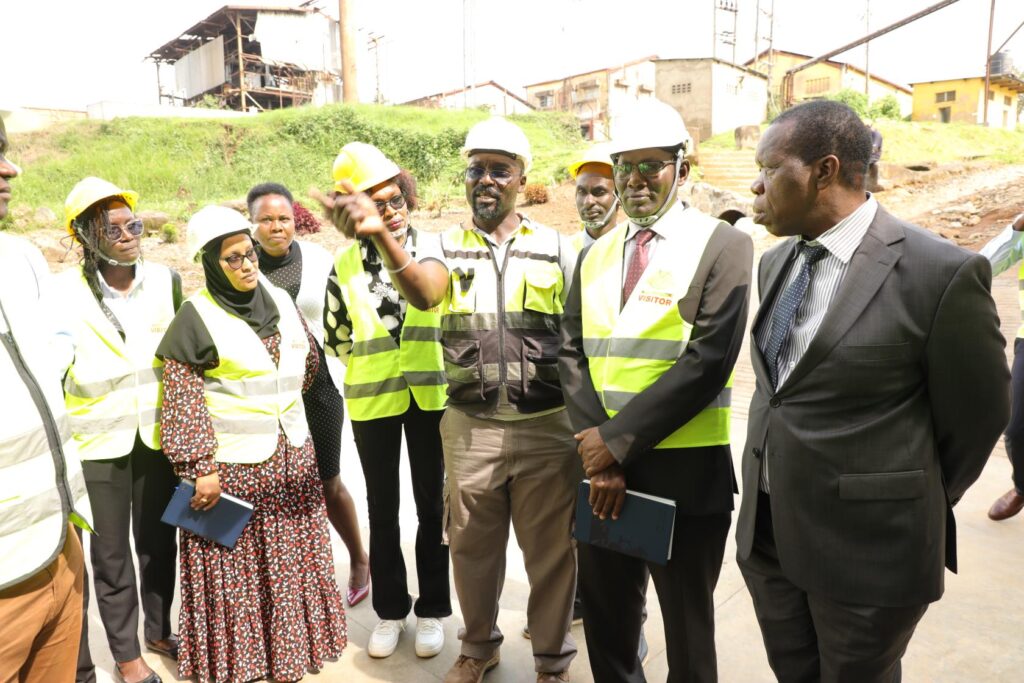
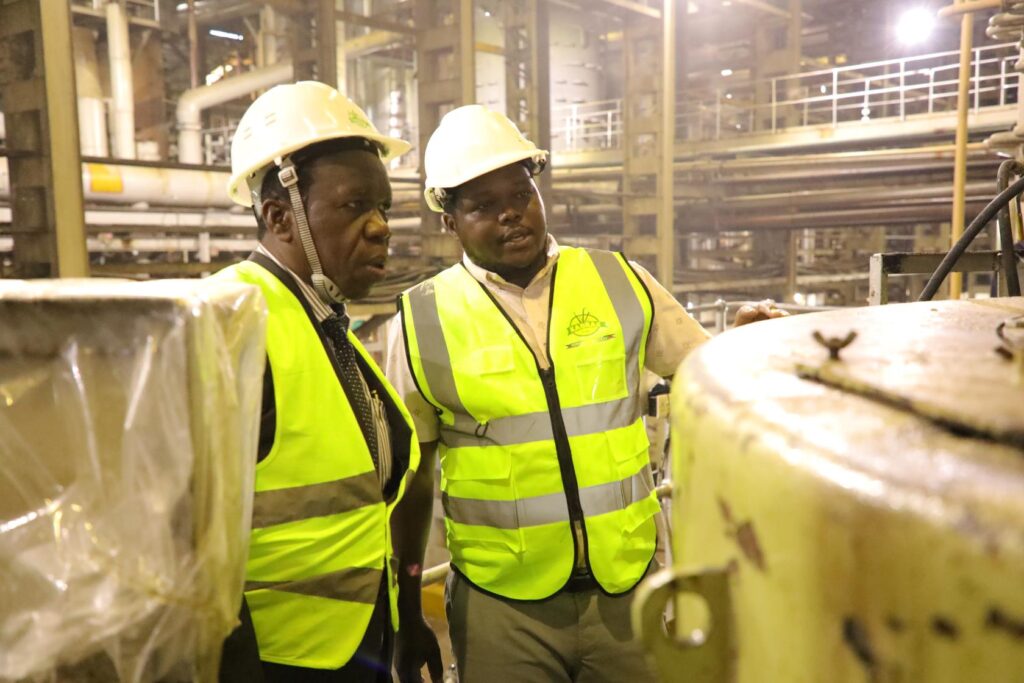
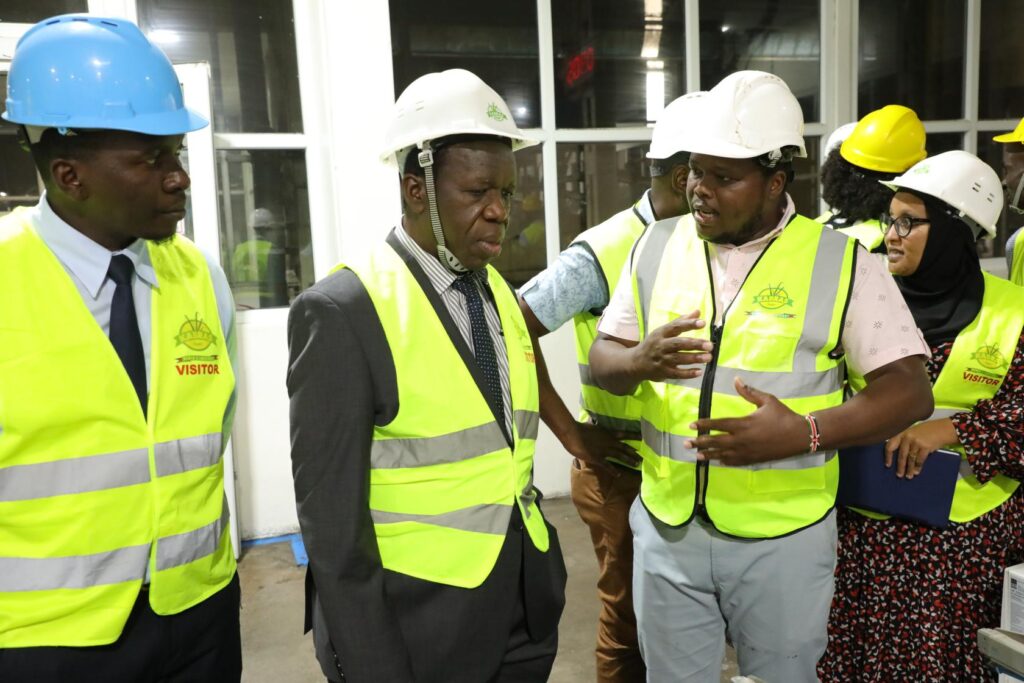
By Caren Nekesa
Photos by Shiundu Masafu

